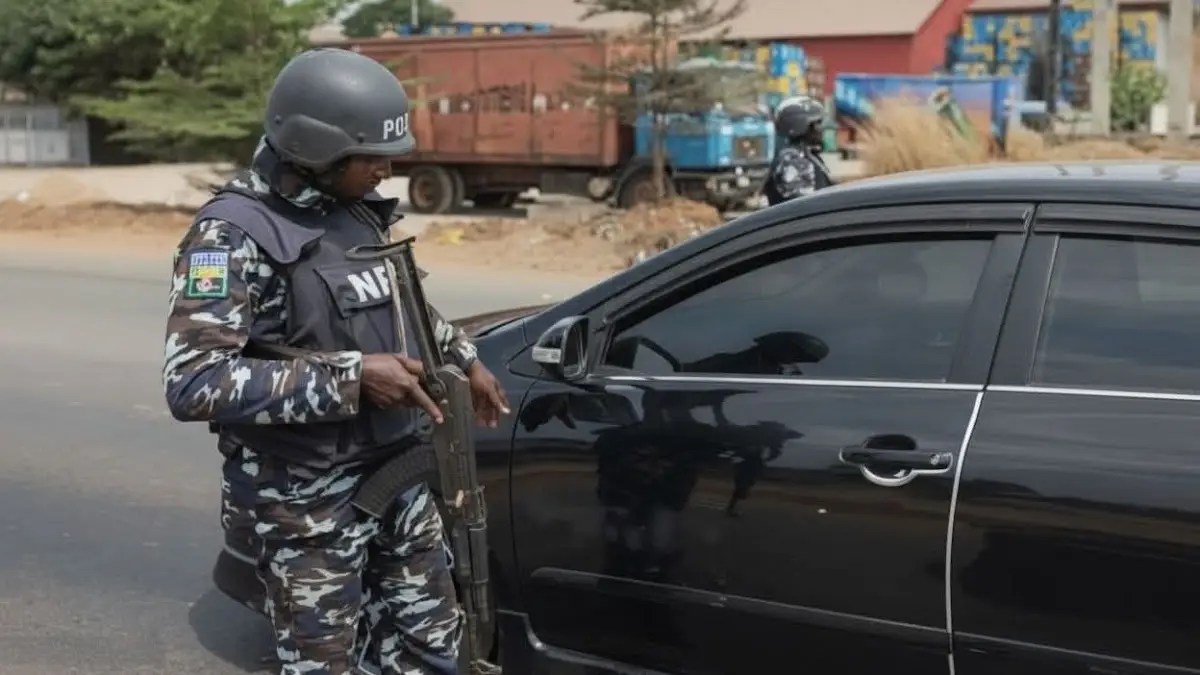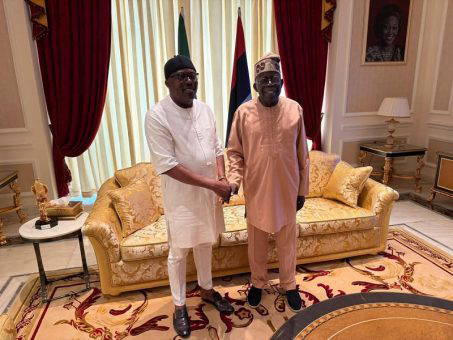News
Is Trade for Aid Such a Bad Thing? Do We Want to Be a Charity Case or Business Partner?

By Joel Popoola
Joel Popoola, the Chair of IoD Africa Special Interest Group, a task force aiming to improve trading ties between Africa and the United Kingdom, responds to the newly published International Trade Strategy.
The UK government’s new International Trade Strategy directly links Britain’s aid budget to trade deals – and as a result has been criticised for offering “aid for trade” and accused of putting “politics before poverty” and being “a double whammy against the world’s poor”.
One opposition politician called the policy “short-sighted and wrong” – another claimed, “the UK’s proud reputation as a development superpower has been comprehensively trashed.”
As British, I think things are a little more nuanced.
As Africans, we must ask ourselves – what do we want from overseas aid? Do we want to be a charity case or a business partner?
As a business leader, I know what I prefer.
One path sees nations in Africa, with something of a perpetual colonial status, eternally dependent on handouts from former rulers. The other sees us raised up – and raising ourselves up – to the status of equals.
At the heart of the strategy is a decision that the British government’s contributions to multilateral organisations will decrease in favour of bilateral partnerships.
This means favouring individual aid packages aimed at, in the words of the strategy, “supporting partner countries to grow their economies sustainably” through investment “in particular for cleaner and more reliable infrastructure.”
Does anyone deny that we need that sort of infrastructural investment if we are to realise our potential on the international stage? Much of Africa is crying out for investment in power grids, transport networks and broadband – just look at the epidemic of power cuts which has recently plagued much of Nigeria’s economic centres.
Buying British continues to be something of a status symbol in parts of Africa. We should not fear it being a condition for securing that investment.
The strategy is clear that aid is not intended to be entirely altruistic. This approach is designed to “deliver for people here in the UK – investments abroad will generate export opportunities in the UK, creating jobs right across the country”.
But that does not mean that the approach is entirely without merit for continents like Africa. Of course there is a huge amount of self-interest in the strategy. But this self-interest is mutual. Job creation, transport networks, power grids, renewable energy projects and digital infrastructure are the foundations of future growth across Africa. And this is a path to that growth.
Trade helps countries in continents like outs to grow our economies, raise incomes, create jobs and lift ourselves –and our citizens – out of poverty.
This is a more sustainable and desirable outcome than relying on handouts.
In the short term, I cannot deny that I have anxieties about the strategy’s implementation – shared threats such as Covid-19, climate change and civil disorder, in the case of my own Nigeria from Islamist Militants, demean a coordinated international response.
In its implementation, the strategy must balance infrastructural development with social projects to promote gender equality, education, democracy and other core values.
But in the longer term the approach is consistent with the British government’s support for the African Continent Free Trade Area – which as the world’s largest free trade area, has the potential to boost our entire continent’s economic growth by driving industrialisation, generating jobs and delivering prosperity across the continent.
The UK government has already negotiated a number of free trade agreements with African countries and trading blocs since it left the European Union, creating tariff and duty free trade between Britain and 30 African nations – this means significant opportunities for African consumers and companies, not least in our 24 English speaking countries.
As the head of the Institute of Director’s Special Interest Group for Africa, I want African and the UK alike to benefit from stronger trading relationships.
One UK parliamentary report recently noted that UK-Africa trade has ‘flat-lined’ –accounting for just 2.5% of all UK trade. But before Covid-19 the world’s five fastest-growing economies were all African, and regional leaders like South Africa and Nigeria are likely to become superpowers of the global economy as we move towards the second half of this century. More needs to be done on both sides to take advantage of the opportunities on offer. This strategy is a valuable starting point.
Critics of the strategy also demonstrate a certain naiveté when it comes to which nations are the most self-interested when it comes to international aid.
The UK government has stated that the strategy is designed to challenge “malign actors” who use “patronage, investment and debt as a form of economic coercion and political power”.
These “malign actors” provided Africa’s nations with development funding – but saddled them with debt which comes with political strings attached.
Britain’s world-leading expertise in finance, clean energy and infrastructure – and it’s historic and enduring links with Africa – make it the obvious choice as a partner for mutual prosperity.
Its motivations may be influenced by self-interest – but they are a good deal more altruistic than other nations.
Joel Popoola is the Chair of the Institute of Directors Special Interest Group for Africa which works to stimulate business opportunities, increase networking and grow awareness of British businesses in Africa, and African businesses in Britain.
This article is written in a personal capacity, any views do not reflect the position of the IoD.
News
Finally, Police Suspend Tinted Glass Permit Enforcement

The Nigeria Police Force has suspended the nationwide enforcement of its tinted glass permit policy following an interim court order that restrained the move.
The Force announced on December 15, 2025, that it would begin enforcing the policy starting January 2, 2026, citing its responsibility to ensure public safety and internal security.
However, in a statement issued on Thursday and signed by Force Public Relations Officer Benjamin Hundeyin, the police revealed that they were served with an interim order on December 17, 2025.
The enforcement will remain suspended pending the hearing and determination of the substantive suit or the vacation of the interim order.
“The Nigeria Police Force was served with an interim order of court in Suit No. HOR/FHR/M/31/2025, issued on 17th December 2025, restraining the Force from proceeding with the enforcement of the Tinted Glass Permit policy pending the hearing and determination of the substantive suit or the vacation of the order,” the statement said.
The police also confirmed that they had entered an appearance in the case, raised preliminary objections, and formally requested the vacation of the interim order.
The case has been adjourned to January 20, 2026, for further hearing.
“In line with constitutional obligations and respect for judicial authority, the Nigeria Police Force has entered appearance in the matter, raised preliminary objections, and formally applied for the vacation of the interim order. The court has adjourned the case to 20th January 2026 for further proceedings,” the statement added.
The statement noted that the suspension of enforcement is being carried out in strict adherence to the ongoing court order.
“Accordingly, and strictly in compliance with the subsisting court order, the Nigeria Police Force has placed the enforcement of the Tinted Glass Permit policy on hold nationwide, pending the decision of the court.”
Inspector-General of Police Kayode Egbetokun reaffirmed the Force’s commitment to upholding the rule of law while fulfilling its duty to protect lives and property.
“The Inspector-General of Police, IGP Kayode Adeolu Egbetokun, PhD, NPM, affirms that the Nigeria Police Force remains resolute in upholding the rule of law while discharging its primary mandate of protecting lives and property. The Force will continue to deploy lawful, intelligence-driven strategies to address security challenges and safeguard public safety across the country,” the statement added.
The Force also assured members of the public that it would communicate further developments and issue clear guidance as appropriate, following the court’s determination of the matter, in the overriding interest of public order and national security.
News
Court Remands Ex-AGF Malami, Son, Wife in Kuje Prison

The Federal High Court In Abuja on Tuesday ordered the remand of the Former Attorney-General of the Federation and Minister of Justice, Abubakar Malami (SAN), at the Kuje Correctional Centre pending the hearing and determination of their bail application.
The trial judge, Justice Emeka Nwite, also ordered the remand of his co-dedendants, his son, Abubakar Malami, and one of his wives Bashir Asabe.
Justice Nwite made the order after taking arguments from the defence team led by Joseph Daudu (SAN) and the prosecution counsel Ekele Iheneacho (SAN).
Malami and his co-defendants are facing a 16-count money laundering charge preferred against them by the Economic and Financial Crimes Commission.
The EFCC alleges that the defendants conspired at various times to conceal, retain and disguise the proceeds of unlawful activities running into several billions of naira.
According to the charge, the alleged offences span several years and include the use of companies and bank accounts to launder funds, the retention of cash as collateral for loans, and the acquisition of high-value properties in Abuja, Kano and other locations.
The commission further alleges that some of the offences were committed while Malami was serving as Attorney-General of the Federation, in breach of the Money Laundering (Prohibition) Act 2011, as amended, and the Money Laundering (Prevention and Prohibition) Act 2022.
News
2027: Backing Tinubu Not Guarantee for Second Term Ticket, Wike Mocks Fubara

Minister of the Federal Capital Territory (FCT), Nyesom Wike, has sent a veiled message to Rivers State governor, Siminalayi Fubara, saying support for President Bola Tinubu alone will not guarantee any election ticket.
Wike made the statement on Sunday during a public outing in Emohua Local Government Area of Rivers State.
His remarks were widely seen as directed at Governor Fubara, amid lingering political crisis in the State.
The former Governor of Rivers State said political loyalty must be tested during difficult times, not after power has been secured.
He mocked those he described as late supporters of President Tinubu, insisting that sudden alignment would not earn political rewards.
He said: “So the issue is not whether you are supporting Tinubu. That one, we have taken too long, long… Yes, oh. So Tinubu’s issue is not an issue again. Yes. Do you understand me? Yes. Tinubu’s issue is that nobody should be coming here to tell a day. We are for Tinubu; I am against you. Who is for Tinubu University? (laughs) That cannot give you any ticket oh! (laughs again) Direct, direct. It will not. Direction. Direction.”
Wike stressed that his political camp stood with Tinubu when the decision was unpopular. He said that support given under pressure carries more weight than alignment after victory.
He also recalled how the Rivers State House of Assembly openly backed Tinubu early, long before the election outcome was certain.
According to him, some of those now making public declarations were absent during the critical period.
“The same people now who came to declare, put them to God… But they should declare they are saying it for a candidate. Yes. Don’t you see characters? (laughs) So I send the sword far ahead of them.”
Wike further spoke on governance and continuity. He defended projects and agreements initiated during his tenure as governor. He said it is often difficult for successors to acknowledge past efforts, even though government is a continuous process.
His comments come weeks after Governor Fubara formally aligned with the All Progressives Congress (APC), the party of President Tinubu.
The move followed months of political crisis in Rivers State, which led to federal intervention and a declaration of emergency rule.
Political watchers believe Wike’s remarks constitute a direct response to Fubara’s recent positioning as a key Tinubu ally in Rivers politics. Critics argue that Fubara’s support surfaced only after the political storm had settled.
Wike, who remains a dominant force in Rivers State politics despite serving in Abuja, appears to have drawn a clear line ahead of the 2027 elections.
He suggested that political tickets would be decided by proven loyalty, not convenience.
Videos from the event in Rumuche, Emohua, spread rapidly on social media. Many users described the speech as a coded warning to the governor.
As of press time, neither the Rivers State Government nor Wike’s media team had issued an official clarification.
The comments, however, suggest that the political rift between both camps is still active, despite earlier peace moves brokered at the national level.






